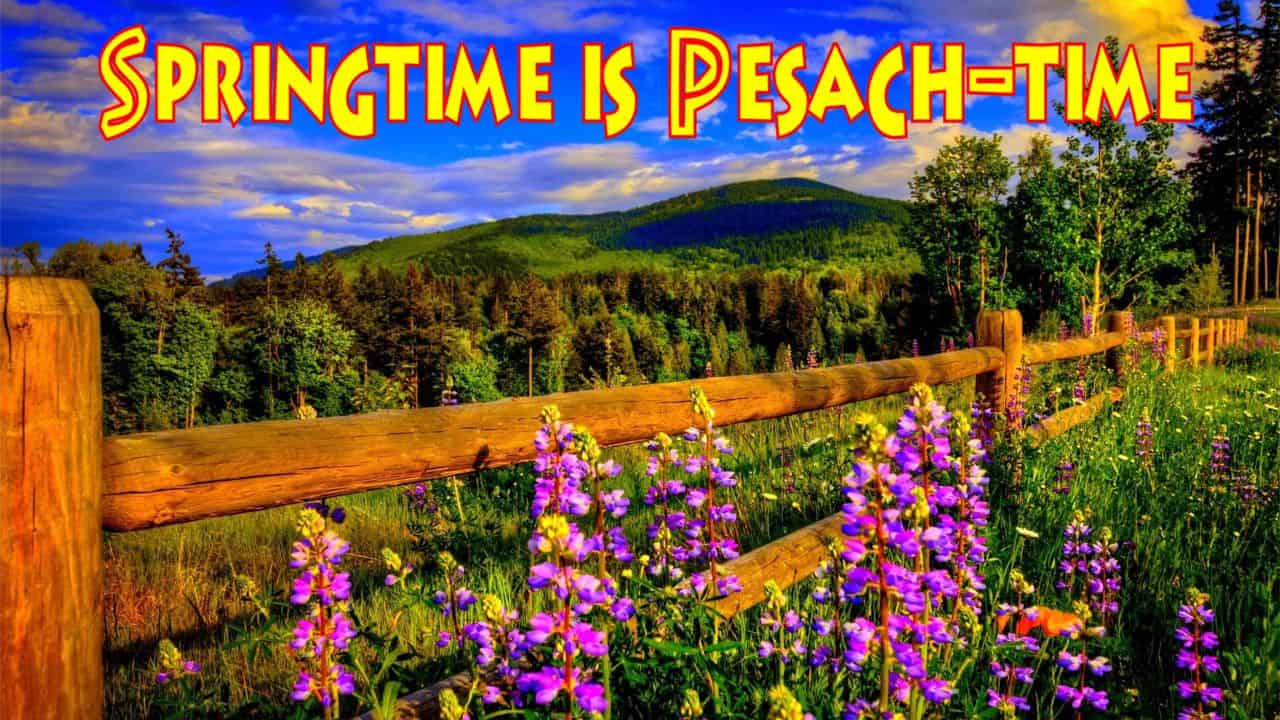Springtime is Pesach-time
Passover is always observed in spring, on the fifteenth day of the month of Nissan (around March or April). The Torah describes the month in which Passover falls as the first month, and emphasizes several times that Pesach occurs in the springtime:
God said to Moses and Aaron in the land of Egypt, saying: This month shall be for you the beginning of the months; it shall be for you the first of the months of the year…
You shall observe the Festival of Matzos; seven days shall you eat matzos, as I have commanded you, at the appointed time of the month of springtime, for in it you left Egypt…
You shall observe the month of springtime and perform the Passover-offering for God, your God, for in the month of springtime God, your God, took you out of Egypt at night.
Jewish festivals are not mere commemorations of past events, they enable us, in our lives today, to access the spirituality inherent in a particular time of year. Even before the creation of the world, the month of Nissan was designated as a time of beginning, birth and renewal (In the Torah, Nissan is called the “first month”). The physical manifestation of that spiritual energy is springtime, when the ice and snow thaw and when trees and flowers blossom and when many animals give birth to their young. The historical manifestation of that energy was the Jewish people’s Exodus and redemption from Egypt, their entry into Israel in the time of Joshua and their return to Israel after seventy years in the Babylonian exile.
That energy is manifested in the Torah through the festival of Pesach. When we observe the festival in its appropriate time and fulfil its commandments we are actually tapping into the spiritual energy that lies beneath the surface of the physical world. A unique blessing which is said during the month of Nissan, when one sees a blossoming fruit tree, offers us another way of getting “in-sync” with springtime and recognizing God’s handiwork in nature. Through all these observances we are able to recapture that revelation of Godliness which our ancestors experienced at this time of year, thousands of years ago.
Pesach is associated with spring also because it is the time of the physical birth of the Jewish nation. Just as the soil produces a new crop in the spring and the first buds blossom on the trees, so too, the Jewish people were born in the spring. The Jews were slaves, the lowest class of society, continually engaged in hard, manual labor without any possibility of self-expression. In this sense, the Jews as a people were in a state of non-existence in Egypt. Pesach celebrates our redemption from that state, our physical coming into becoming as a nation. (This was followed closely by the beginning of our spiritual nationhood, when we accepted the Torah at Mount Sinai on Shavuot.) Pesach therefore occurs in the spring, the time of birth and creation in nature. These ideas are alluded to in the Song of Songs, in a beautiful verse, which the Sages explain as a call from God to the Jewish people in Egypt:
My beloved spoke up and said to me: Arise, my beloved, my fair one, and come away. For behold, the winter has passed, the rain is over and has gone away. The blossoms have appeared in the land, the time of singing has arrived, and the voice of the turtledove is heard in our land.
The Holy One, blessed be He, said to the Jewish people in Egypt: Arise My beloved, the month of spring is here, and the time of redemption has arrived.

